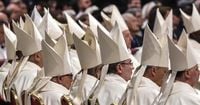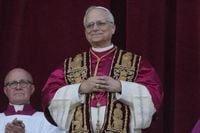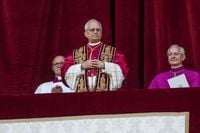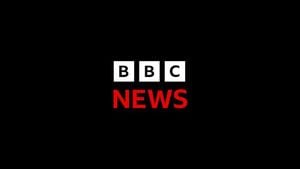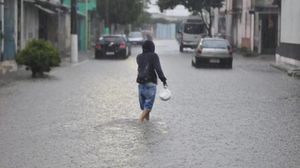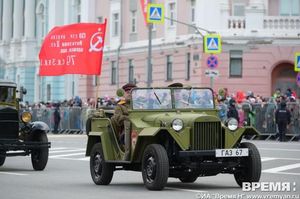White smoke billowed from the Sistine Chapel on Thursday afternoon, May 8, 2025, signaling the election of a new leader for the Catholic Church. Cardinal Robert Prevost, now known as Pope Leo XIV, has made history as the first American pope, taking his place on the balcony of St. Peter’s Basilica in a white cassock before a crowd of eager onlookers. His election marks a significant shift for the Church, which is home to approximately 1.4 billion Catholics worldwide.
Pope Leo XIV, a centrist figure with dual citizenship in the United States and Peru, addressed the public in both Italian and Spanish, delivering a message centered on peace. "Peace be with you all. Dear brothers and sisters, this is the first greeting of the Risen Christ, the good shepherd who gave his life for the flock of God," he stated, expressing a desire for his message of peace to resonate globally.
The election of Pope Leo XIV is seen as a departure from the progressive legacy of his predecessor, Pope Francis, who was known for his inclusive approach towards marginalized communities, including LGBTQ+ Catholics. Francis, who passed away last month at the age of 88, famously stated, "If someone is gay and he searches for the Lord and has good will, who am I to judge?" His papacy was characterized by a focus on compassion and social justice, and he often called for greater inclusion within the Church.
In contrast, Leo XIV's views on LGBTQ+ issues appear more conservative. A 2012 statement from Prevost expressed dismay at the media's portrayal of the "homosexual lifestyle" and the sympathy for beliefs that contradict the gospel. While Pope Francis advocated for the blessings of same-sex unions on a case-by-case basis in October 2023, Leo XIV's stance on these matters remains uncertain. In October 2024, he emphasized the need for discussions among bishops regarding the application of such blessings, particularly in regions where cultural attitudes towards homosexuality differ significantly.
Michael O'Loughlin, executive director of Outreach, an organization supporting LGBTQ+ Catholics, expressed cautious optimism regarding the new pope. "We are sitting here Googling everything we can about the new pope," he remarked, highlighting the uncertainty surrounding Leo XIV's positions. The LGBTQ+ community within the Church is hopeful that he may continue the work initiated by Francis, even if his past remarks raise concerns.
Prevost's approach to migrants aligns more closely with that of Pope Francis. Known for his compassion towards Venezuelan migrants in Peru, he has expressed concern for the plight of those fleeing economic instability. This is a continuation of Francis’s legacy, who was vocal in his support for migrants, stating that the Church's mission should uphold the dignity of every person.
However, Leo XIV has remained firm against the ordination of women, echoing the sentiments of Pope Francis. During a Synod on Synodality in October 2023, he remarked that while women contribute significantly to the life of the Church, ordaining them may not resolve existing issues and could potentially create new ones. This perspective mirrors Francis's own position, which allowed women to vote in synods but did not extend to priestly ordination.
On environmental issues, Pope Leo XIV is expected to continue the work of his predecessor as a steward of climate change. He has previously called for a more reciprocal relationship with nature, emphasizing that dominion over the Earth should not be tyrannical. This aligns with Francis's views that the environmental crisis is intertwined with social justice, particularly affecting the poorest communities.
Prevost's election has drawn mixed reactions within the Church. While some express hope that he will maintain a compassionate approach to marginalized groups, others are concerned about his past comments and the potential for a more conservative papacy. Francis DeBernardo, executive director of New Ways Ministry, noted the need for a "wait and see approach" regarding Leo XIV's actions and statements.
Despite the uncertainty, many believe that the new pope's election reflects a broader trend within the Church. As attitudes among everyday Catholics evolve, there is hope that the Vatican will also adapt to these changes. A 2020 study showed that a significant portion of the LGBTQ+ community is religious, including 1.3 million Roman Catholics in the U.S. This demographic shift may influence the Church's approach to inclusivity in the future.
As Pope Leo XIV begins his papacy, he faces the challenge of navigating the complex landscape of a global Church marked by diverse cultural attitudes and significant internal divisions. His choices and statements in the coming weeks and months will be closely monitored by both supporters and critics, particularly those advocating for LGBTQ+ rights and greater inclusion.
In his first address, Leo XIV expressed a desire to foster unity and peace among all people. The question remains whether he will uphold the progressive strides made by Pope Francis or steer the Church in a more conservative direction. Only time will tell how this new pope will shape the future of Catholicism and address the pressing issues facing the Church today.
